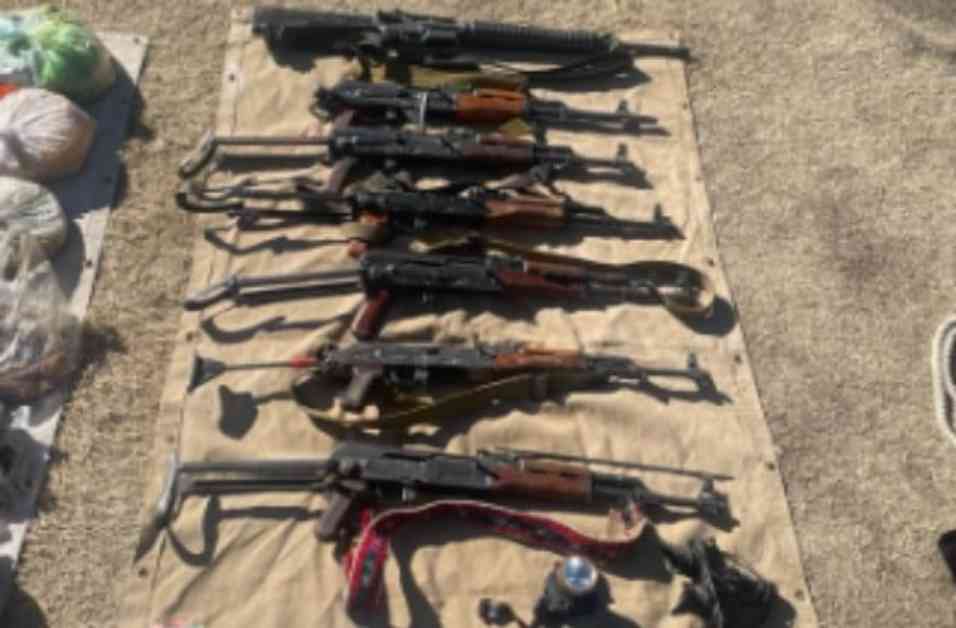Bagan Residents Surrendering Firearms Amid Ongoing LEA Operation
In Lower Kurram, a significant development is unfolding as residents of Bagan have begun surrendering their firearms to authorities amidst a law enforcement operation that has entered its third day. Police sources have confirmed that arms are being collected from Bagan and its surrounding areas, where the operation is currently underway. The operation has seen the utilization of heavy artillery and helicopter gunships to target alleged miscreants’ hideouts in the area.
Sectarian Tensions and Peace Agreements
The backdrop to this surrender of firearms can be traced back to escalating sectarian tensions in Kurram district following an attack on a convoy traveling from Parachinar to Peshawar last year, resulting in significant loss of life. However, a peace agreement was reached on January 1 under the auspices of a tribal Jirga in Kohat, with local residents committing to surrender their weapons to the state within 15 days.
Challenges and Retaliatory Attacks
Despite the peace agreement, challenges persist, as demonstrated by an attack on a convoy near Bagan on January 4 that left the former Kurram deputy commissioner injured. Subsequent incidents, including rocket attacks and abductions, have further complicated the situation, prompting the authorities to launch an operation against miscreants in the area.
Community Responses and Calls for Justice
Tribal elder Malik Iqbal Badshah and resident Muhammad Afzal have voiced concerns over the ongoing operation, highlighting past instances of violence and the need for justice for those affected. As tensions remain high, the residents of Bagan are demanding accountability and compensation for losses suffered during previous conflicts.
The evolving situation in Lower Kurram underscores the complex interplay of historical grievances, peace agreements, and ongoing security challenges. As residents take the crucial step of surrendering their firearms for peace and security, the path to lasting stability in the region remains uncertain, with community voices calling for justice and reconciliation.









